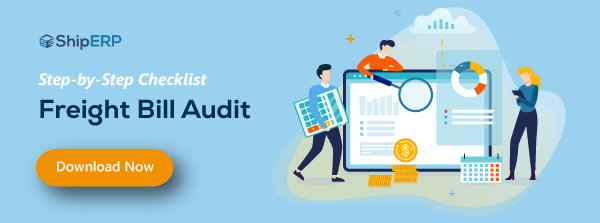
23 Types of Freight & Accessorial Charges You Need to Know
Companies expect more significant revenues when doing transactions with businesses outside of the country. Before making a purchase, it is essential to understand what the shipping rates will be.
Understanding specific fees can help your company reduce issues and failures when shipping items across the region or internationally. Freight invoices may include the following charges and accessorial fees.
23 Types of Freight and Accessorial Charges
- Redelivery: If nobody is available to receive the delivered items or the consignment is turned down by the recipient, the required gear is not on location, etc., a carrier may have to redeliver a package.
- Liftgate: A liftgate may be required to lift packages from the floor to the truck and vice versa. You'll be charged again for redelivery if the truck has no liftgate, and your shipment could arrive late as a result, which can increase the total fees.
- Prior Notification: Carriers charge consignees if they must notify them in advance before delivering their goods.
- Layover: There will be an additional fee if the vehicle cannot be loaded or unloaded on the scheduled shipping date due to any issue.
- Truck Ordered Not Used: There is a fee if you cancel the truck after a certain period stated in the contract.
- Limited Access: Every time a driver goes above and beyond to make deliveries, they charge greater for doing so, including locating a recipient to obtain a delivery or sustaining safety audits and procedures.
- Delivery inside the House: Taking a delivery inside a house needs extra equipment, added hours, and extra charges.
- Detention Fee: Receiver confinement rates apply if you postpone the carrier for any purpose past the anointed time.
- Residential Charges: Unloading shipments in residential areas require additional labor and time. As a result, carriers charge a service fee.
- Metro Shipments: In big cities, clogged traffic, limited parking, and navigating can be a hassle. Carriers incur an extra fee to make up for the lost time.
- Fuel Surcharge Fees: These fees provide an average fuel cost to ensure the carriers do not incur monetary losses because of fluctuation in fuel prices.
- Diversion Miles: After arriving at a receiver, the shipper could instruct the carrier to drive to a different place, and the extra miles are charged for the fuel and lost time.

- Lumper Charges: Carriers are not required to unload vehicles as part of their job duties. So, if the driver should load or offload the shipments, he is charged for the work cost in those activities.
- Extra Space: It is more difficult to ship an order larger than a pallet and takes extra charges.
- Harmful Substances: The DOT demands appropriate paperwork of Harmful Substances during transfer, due to which they require extra charges.
- Late Shipments: Delivering a shipment after working hours requires extra effort, due to which the carriers incur a fee.
- Multiple Stops: Transporting a delivery between two or more locations often results in these costs.
- Reinstatement and Reweighing: This charge is only applicable to LTL shipments and does not apply to other types of shipments. The load, dimensions, and categorization of an LTL shipment ascertain the LTL fixed rates. It will be necessary for the carrier to redo your order if these specifics are inaccurate or just not offered.
- Storage Fee: The carrier may charge an additional storage fee in certain circumstances.
- Sorting: To compensate for the extra work, drivers may charge a fee for breaking up the package and moving goods from one parcel to the other.
- Cash on Delivery: Carriers reimburse shippers at the date of shipment in return for an extra fee.
- Free-on-board Origin: The shipping is turned over to the recipient at the buyer's port, who is responsible for it. Delivery charges are paid by the shipper, who then issues a shipment invoice to the consignee.
- Free-on-board Destination: The consignee port is where the ownership of the products transfers. The buyer ends up paying the carrier's shipping costs and subtract them from the vendor's invoice.
Your Future in Freight Automation: AuditERP
To keep costs down, improve efficiency, and support data-driven decisions, automating the freight audit process is the clear solution. AuditERP is designed to alleviate your freight bill inconsistencies, especially for SAP environments. It integrates seamlessly with your SAP ERP and ShipERP shipping software, communicating directly with carriers, whether or not they operate on the SAP platform.
AuditERP is just one of the many ways in which ShipERP supports your freight operations. Learn how you can automate your freight auditing by connecting with an ShipERP team member today.


